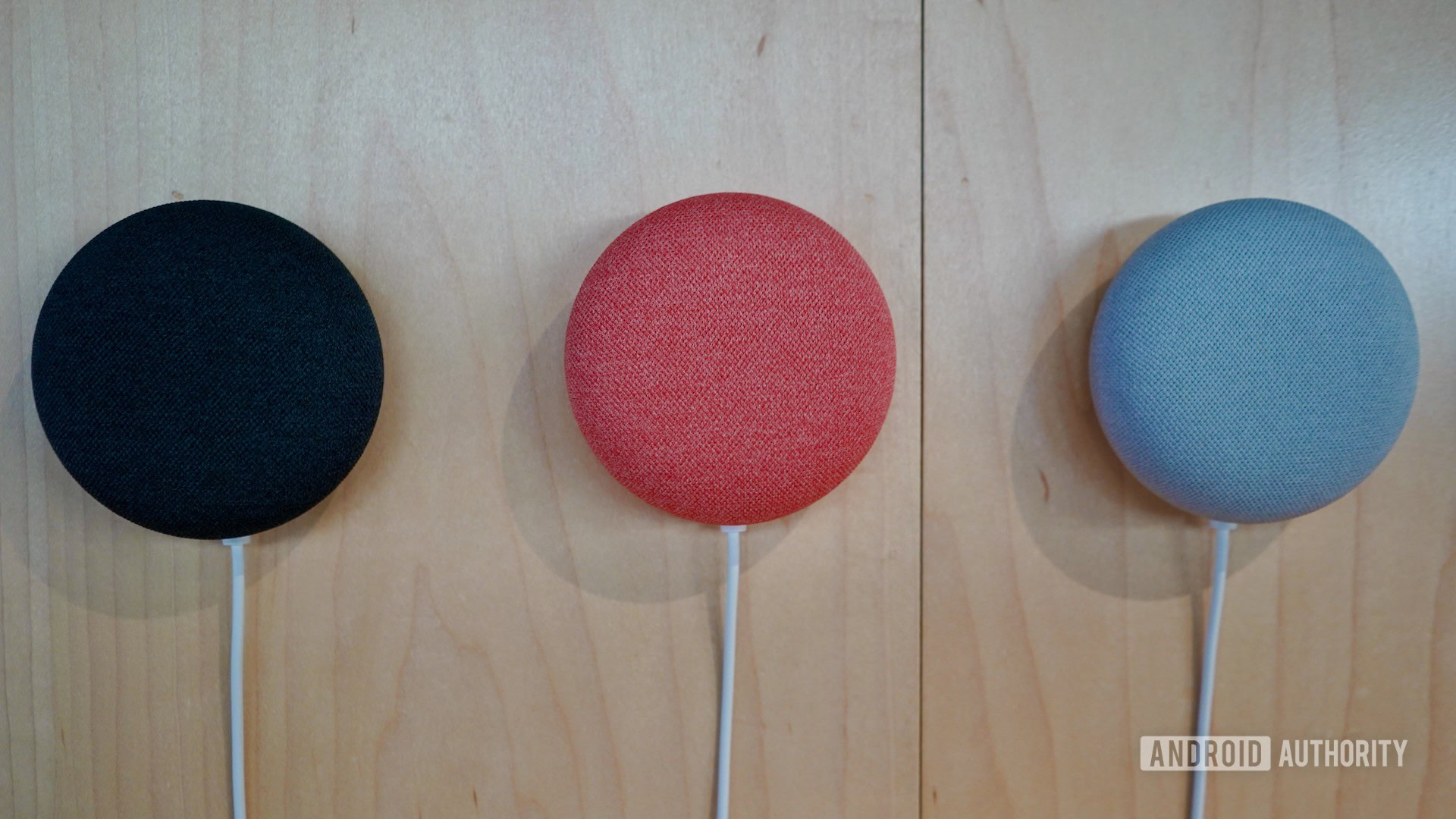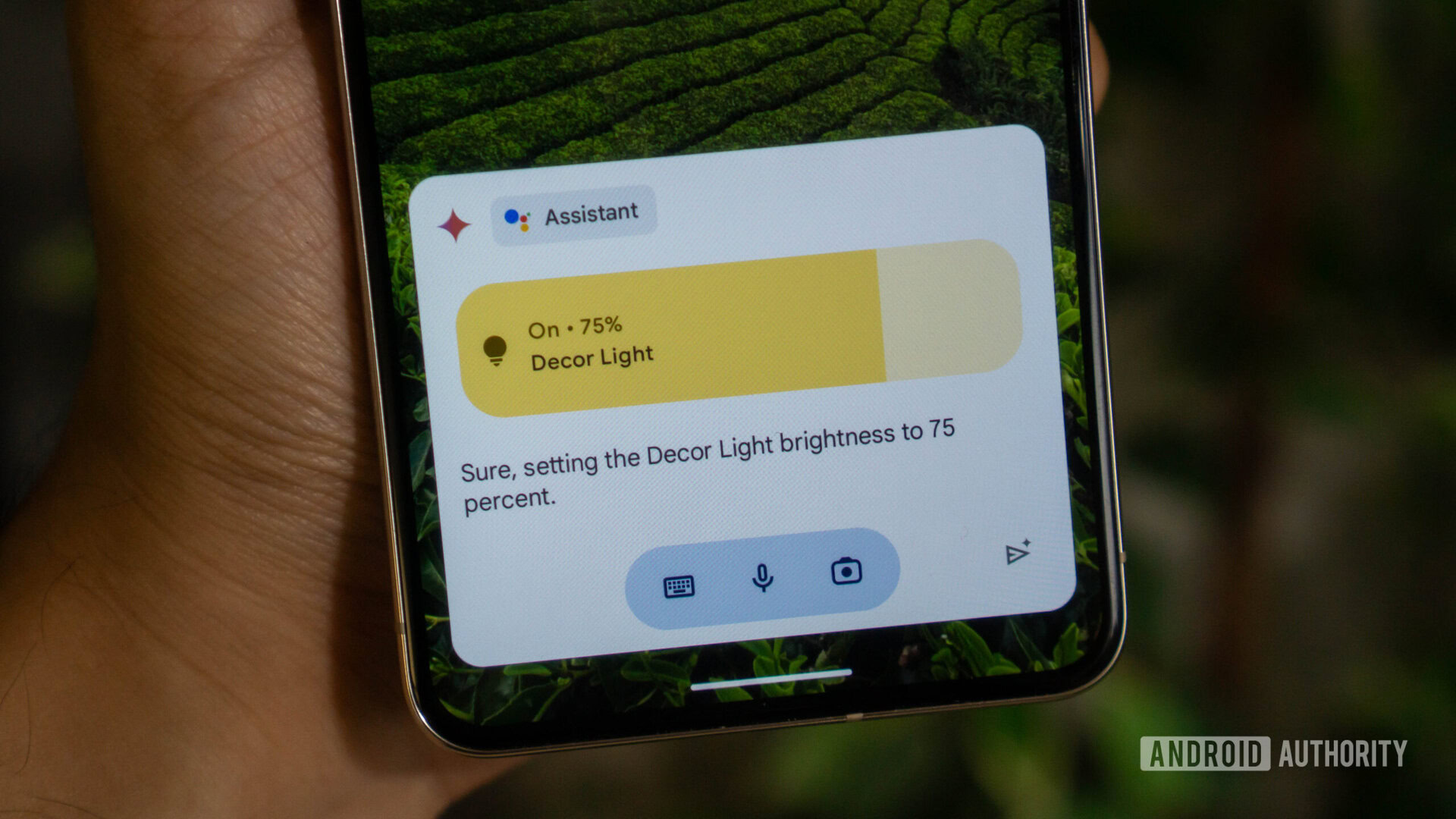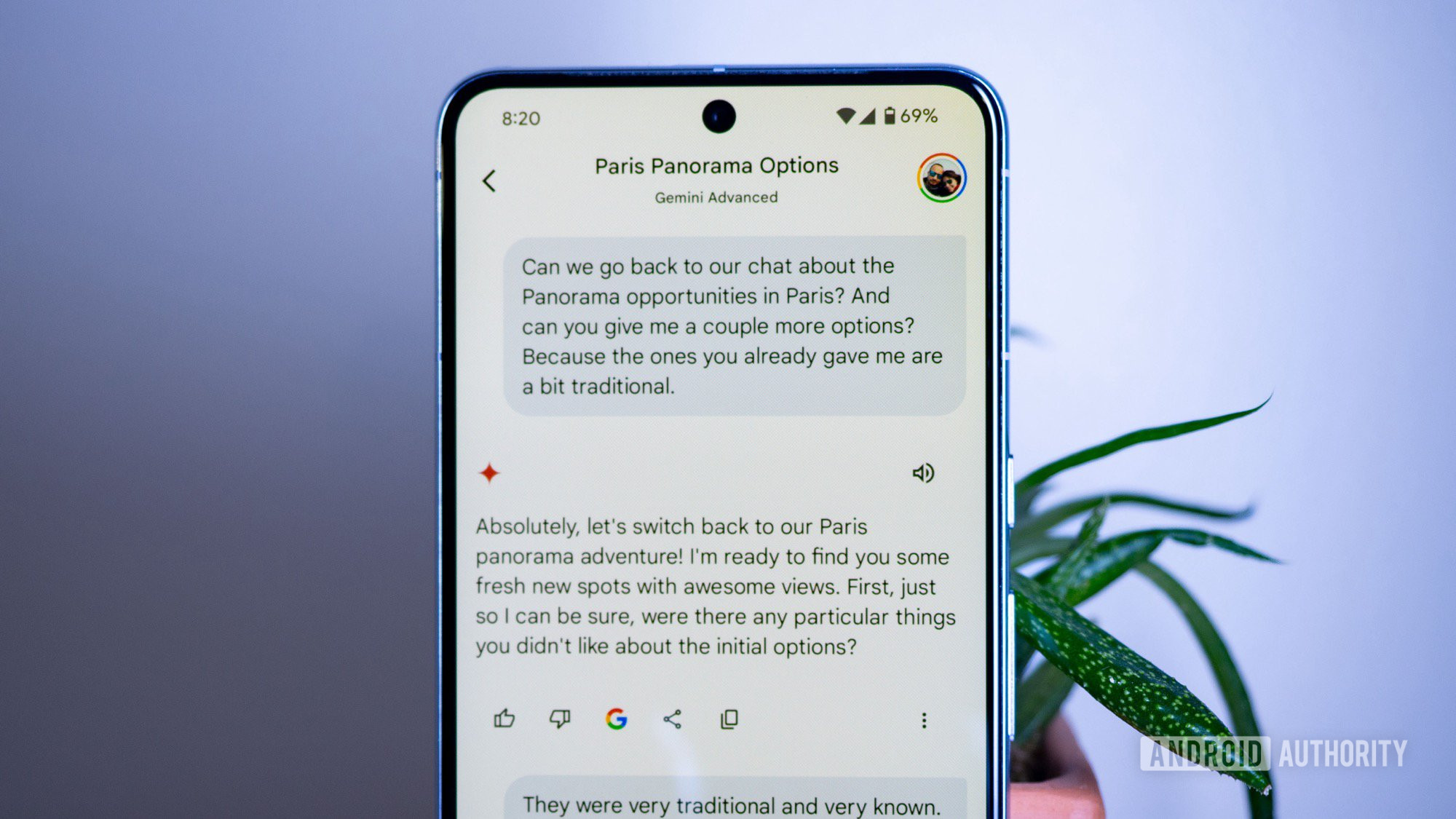When not clicking away at the keys, you’ll likely find me in the kitchen, fridge-gazing or rummaging through the cupboards, debating what to make for dinner. I love cooking and regularly use tech to power up my experience. Sure, I own several cookbooks, but the convenience of immediate access to new recipes is difficult to ignore. So, when Google showcased Gemini Live at its Pixel 9 series launch, I quickly recognized its potential as a digital sous chef.
We waxed lyrical about Gemini Live’s impressive early showing, testing it on debut day and many instances after as we pushed it to its limits. To say that it’s remarkable would be an understatement. The ability to have near-natural, human-like conversations with an AI that can access the wealth of data that Google has at its disposal is super compelling.
But how many of us really want to have such conversations with our smartphones? I sure don’t, at least if I don’t have to. That’s why Gemini Live would be an incredible addition to devices that already use audio as their primary means of interaction, like smart speakers.
Voice assistants still feel like a novelty on smartphones
Ryan Haines / Android Authority
The Pixel 9 series is the obvious platform to showcase Gemini Live’s prowess. It’s Google’s flagship hardware for showcasing its flagship software platform and forms the center point of its ecosystem and AI pushes. The feature has since dropped on other devices, like the Pixel 8 Pro and Samsung Galaxy S24 Ultra, but it’s not widely available yet.
Verbal triggers will always be a tertiary means of controlling a device with a display.
However, I don’t see smartphones as the best way to access voice assistants, let alone those with Live’s smarts. Verbal triggers will always be a tertiary means of controlling a device with a display. The video above by our videographer Paul Jones, is a great example of this. As incredible as Gemini Live is on a smartphone, Google knows you may still want to use the screen while chatting. You can, therefore, push it to the background to continue other tasks. While the Pixel Buds Pro 2 also supports Gemini Live, you will need a Pixel phone in tow, which rather negates the usefulness of this particular pairing.
Smart home devices, specifically smart speakers, are the more natural platforms for voice activations. Gemini Live would make the most sense with Nest Audio, Nest Hub Max, or Nest Mini products that rely on spoken words.
Why a Gemini Live smart speaker would be incredible

By design, smart speakers wait for your verbal prompts and demands. I’m more likely to use one for casual voice requests, especially when my hands are tied or my phone isn’t readily available.
I find myself in this situation more often than not in the kitchen. I don’t want to twiddle with my phone when seasoning a roast or kneading bread, so my Nest Mini comes in clutch. I rely on it for minor tasks, but it would massively boost my workflow if I could lean on it for cuisine advice, method clarifications, or troubleshooting.
I could use Gemini Live from my smartphone, but it’s a supporting device in my kitchen; my smart speaker is the centerpiece.
Let’s consider a practical example, like following a recipe. I usually use my phone for background YouTube or sports if it’s nearby. I’m often forced to jump back and forth between this content and web pages to ensure I’ve measured correctly, matched the recommended temperatures, and stuck to the cooking time. However, this to-and-fro process would be made more seamless with a conversational AI like Gemini Live that wouldn’t require separate prompts each time I ask it a follow-up question or interrupt it. The ability to resume chats, pulling info from previous recipes or ideas, is another massive positive for recreating favorites.
Of course, I could do all this from my smartphone, but it’s a supporting device in my kitchen; my smart speaker is the centerpiece.
Would you chat to AI on a smart speaker?
496 votes
Gemini Live isn’t quite smart home-ready, but it will be soon

Calvin Wankhede / Android Authority
Despite its strong start, Gemini Live isn’t quite ready for its smart speaker primetime, mostly due to practical limitations.
Gemini Live cannot be triggered with a wake word, even on smartphones. “Hey Google” triggers Gemini to spring into life, but you must manually tap the Gemini Live button to switch to a continuous chat session. This can be fixed with a simple software push, though. More importantly, the basic version of Gemini isn’t even available on any smart speaker. While you can replace Assistant on smartphones with the new-generation companion, you cannot do the same on smart speakers. These devices will need to walk before they can run.
It’s unlikely that the feature could be backported to older smart speakers due to horsepower requirements to run the necessary models. Perhaps Google could craft a smaller “pico” model for these devices, but how this would affect performance or latency is unclear. In reality, we’d need a new series of smart speakers capable of running Gemini Live.
The basic version of Gemini isn’t even available on any smart speaker at this point. These devices will need to walk before they can run.
There’s also the question of that subscription. I don’t believe I could warrant paying $19.99 monthly for the benefits of Live, but it may sting less if it were available across the entire smart home ecosystem. Again, that’s remains a conceptual, distant future.
Nevertheless, I’m excited by Google’s Gemini project’s rapid progression. A few years ago, who would’ve thought conversing with an AI would be this seamless? There’s also the promise of Project Astra, a visual tool that could further boost my culinary antics.
It’s not beyond the realms of possibility that we could see Gemini Live on smart speakers in due course. Google seems determined to inject AI features across its software and hardware platforms, and the smart home seems the next viable frontier. I can’t wait.

